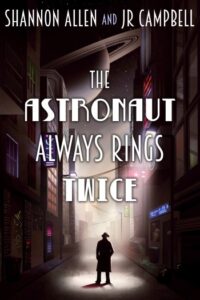Resistance. Bookmarks. Dragons. Dreams.
These are just a handful of examples of recent or pending “themed” submission calls posted on the Publishing . . . and Other Forms of Insanity web site, one of my go-to resources for submission venues.
In my own writing, themed calls have played a key role in idea generation and sales. Brainstorming related to specific themes has generated a number of poems and short stories I might not have otherwise written. But what are the keys for success? I turned to authors on the Science Fiction Canada list-serve, as well as three anthology editors, to gather their thoughts on themed submission calls.
In the Beginning
Many of the writers who responded to my questions about themed calls noted they are selective about which calls to respond to, and they focus on themes that generate ideas they feel enthusiastic about. For some, the first step is to check whether a draft or finished story in their inventory might fit the call’s parameters. Others brainstorm new ideas.
Science fiction author Robert Runté noted that often “one of [his] three usual casts of characters will muscle in and suddenly [he has] a story idea that fits into that universe.” The universe being the themed call.
Originality Matters
Runté also noted that he tries to get past the “obvious” ideas when brainstorming. That’s important, according to Terri Leigh Relf, who has edited a number of drabble (one-hundred-word stories) anthologies. Relf says that out of 100 submissions she might receive for a given issue “ten basically have the same plot line.”
Shannon Allen, who edited the noir detective anthology The Astronaut Always Rings Twice concurs, stating that she often receives several similar submissions. In addition to coming up with original ideas, Allen recommends “going deep” on the theme: “if the call is for stories that have an ocean theme, make sure you incorporate the ocean into your story and it’s not just a setting item.”
And There’s More
Rhonda Parrish, editor of Saltwater Sorrows, says, “If I am engaged with your story on an emotional level—any emotional level—that is definitely a point in its favour.” Allen notes it’s important to “love what you are writing,” and finds that in the pieces that stand out “there is a spark to them.”
Allen recommends submitting stories in the middle third of the submission period, noting, “submitting in the middle allows the editor to read and savor a story and they will be more likely to remember aspects of the story more clearly when making selections for the anthology.”
Keep the Faith
Allen observes, “Just because a story is passed on doesn’t mean it is not a good story. It could be as simple as it was not the right feel for the anthology or . . . another story just fits the flow of stories already picked better.”
Parrish agrees, stating, “When I am reading for an anthology I have to pass on a lot of really, really good stories.”
In looking at my own submission data, I found that only half of my published poems and stories that originated in response to themed calls, landed in the market they were created for. Others found a home elsewhere. This proves that a rejection by the first market isn’t a reason for despair.
The bottom line: keep the faith and keep submitting. A well-written piece should find a home.
Like me, many of my SciFi Canada colleagues find writing for themed calls to be worthwhile. If you haven’t tried writing for a themed anthology or magazine issue yet, why not give it a try? You just might find a new passion.
Bio: Lisa Timpf is a retired HR and communications professional who lives in Simcoe, Ontario. Her poetry, fiction, creative nonfiction, and book reviews have appeared in New Myths, Star*Line, The Future Fire, and other venues. Lisa’s speculative haibun collection, In Days to Come, is available from Hiraeth Publishing. You can find out more about Lisa’s writing and artwork at http://lisatimpf.blogspot.com/.
Leave a Reply